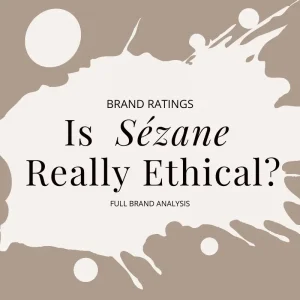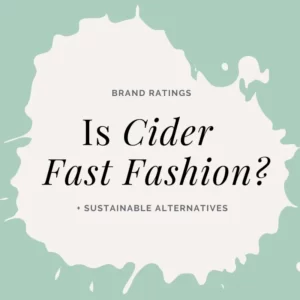We’re reader-supported. The following post contains affiliate links. If you click through a link and make a purchase, we may receive a commission. We only partner with brands who share the same values as we do.
Madewell is an American fashion retail brand specializing in men’s and women’s denim, casual clothing, shoes, and accessories. American retailer J. Crew Group owns the fashion brand.
Madewell operates online and in-store and partners with Nordstrom to retail it’s clothing.
The brand’s name and website features promote sustainable brands, which makes us assume the brand is transparent and sustainable, right? But is Madewell ethical?
We look at some key questions around the materials the brand uses, where Madewell’s clothes are made and more.
Let’s Jump in.
Overall Sustainability Score: Is Madewell Ethical?
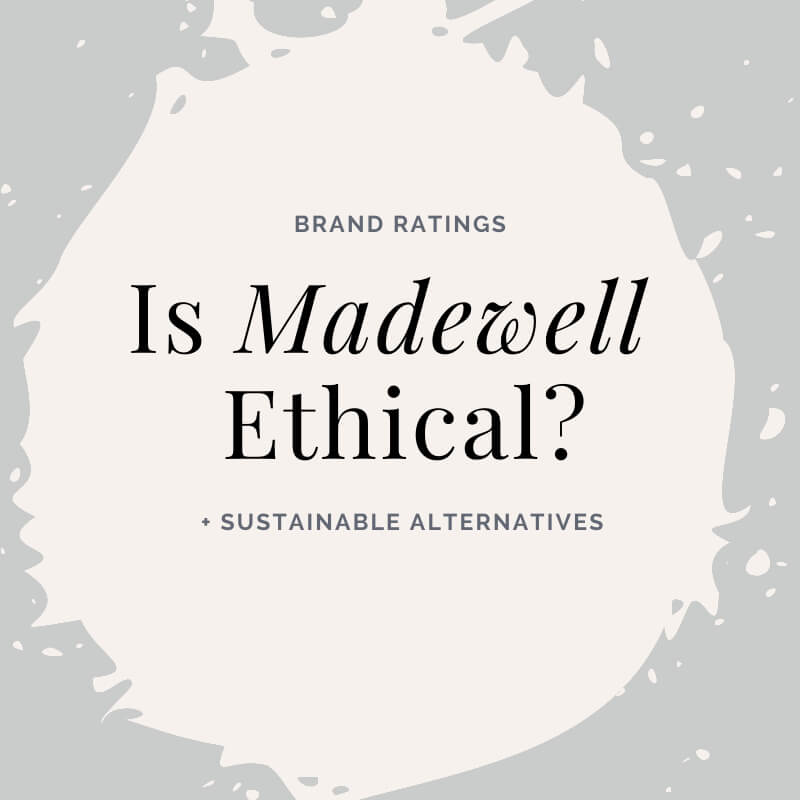
The good: Madewell is introducing recycled, organic, and sustainable materials into its collections; currently, 49% of its cotton is sourced sustainably. The brand partners with Fair Trade USA Certified™factories to produce a percentage of its fair trade denim collection.
The bad: We found very little transparent information about the working conditions of garment workers in Madewell’s supply chain outside of its Fair Trade Certified™ factories. In addition, the brand doesn’t disclose its audit scores of these factories or whether a fair wage is paid to all garment workers.
What Materials Does Madewell Use?
Cotton
Madewell produces the majority of its collections from cotton.
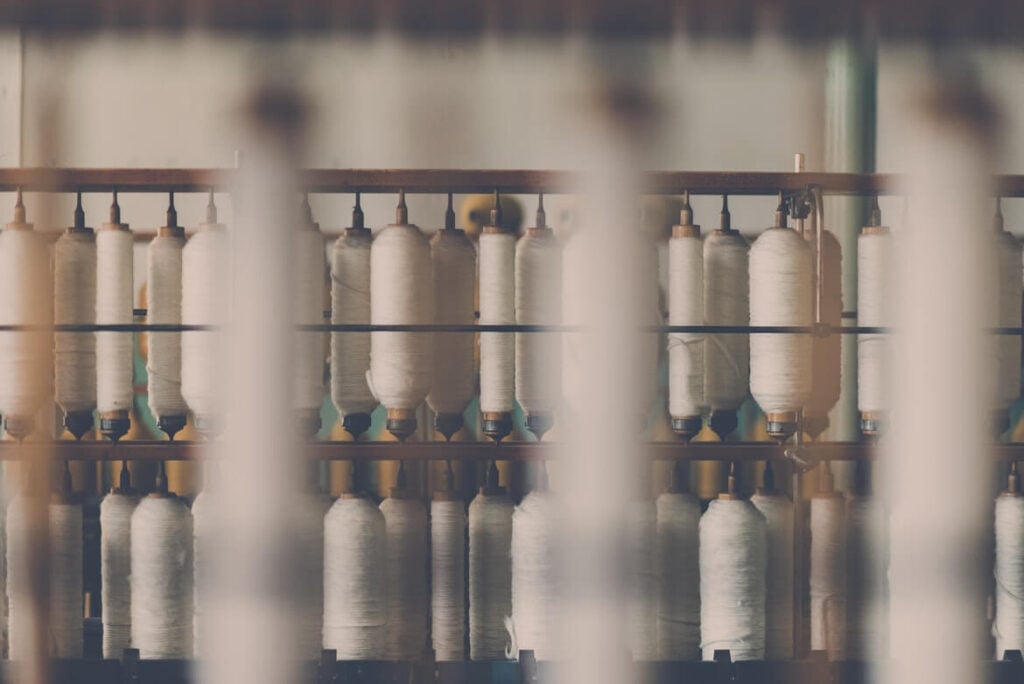
It is well known that cotton farmers and harvesters are often exploited on pay and are subject to unsafe working conditions and unregulated hours. In addition, cotton growth depletes and damages the soil, uses vast amounts of water to grow, and requires chemicals and pesticides to deter pests.
In 2020 49% of Madewell’s cotton was sourced from organic, recycled or sourced through Better Cotton Initiative (BCI), a non-profit that promotes farmers’ education and training to improve sustainable and ethical practices.
The brand, however, does not disclose information about where the other 51% of cotton is sourced. While Madewell states, it has banned the use of cotton from the Xinjiang Uyghur Autonomous Region (XUAR) in China and from Uzbekistan, where slave labor is knowingly practiced. The brand still doesn’t disclose where half of its cotton is sourced from or provide any information about the working conditions of its cotton suppliers.
While the brand produces almost half of its clothing from recycled and organic cotton, over half of Madewell’s cotton isn’t from organic or BCI sources.
Polyester
In 2020 only 8% of Madewell’s collections were sourced from recycled polyester. Virgin Polyester is energy-intensive to create and is not biodegradable.
Is Madewell Carbon Neutral?
No – Madewell isn’t a carbon-neutral company; however, it conducts energy analysis into its carbon footprint. In 2020 Madewell contributed to 4,143 MT CO2e across all Madewell operations. The brand has a goal to become carbon-neutral by 2030.
Where are Madewell Clothes Made?
Unfortunately, Madewell isn’t entirely transparent about where its clothes are made. Madewell’s parent company J.Crew scored a poor score of 14% in The Fashion Transparency Index 2020, which details how much information the biggest fashion retailers disclose about their suppliers, supply chain policies and practices, and their social and environmental impact.
The brand has taken steps in the right direction and in 2019 partnered with Fair Trade USA. As of 2021, Madewell currently has nine FairTrade Certified™ factories. Additionally, the brand aims to produce at least 90% of its denim in Fair Trade Certified™ factories by 2025.
As of 2021, 56% of Madewell’s denim was Fair Trade certified. However, this is where the brand falls down in terms of its brand transparency, as the brand doesn’t indicate any information about where the rest of its clothes are produced.
The brand has documents on its website stating codes of conduct its suppliers must follow and also says it audits its suppliers based on the code of conduct however, the brand does not publish the audit scores of these factories, so we struggled to clarify whether its suppliers actually meet the requirements in its code of conduct.
Madewell specified in its code of conduct that “Workers shall be paid at least the minimum wage or a wage that is consistent with prevailing local industry standards; whichever is higher.” Without proof of audit scores or the publishing of wages, we cannot verify whether this is being followed in its factories.
Is Madewell Cruelty-Free?
The brand states in its Animal welfare code that it does not permit the use of fur, endangered animals, Angora, or exotic skins.
The brand specifies any leather used is a by-product of the meat industry and that if down is sourced, it must be sourced from Responsible Down Standard sources. You can read Madewell’s full animal policy here.
While the brand has some vegan styles, the brand does use leather and wool in its collections.
Sustainable Alternatives to Madewell
Below you can find some great sustainable and ethical alternatives to Madewell. We’ve chosen brands that are already using sustainable materials and practices and are transparent about where their clothes are made.
1. Able
2. Boyish
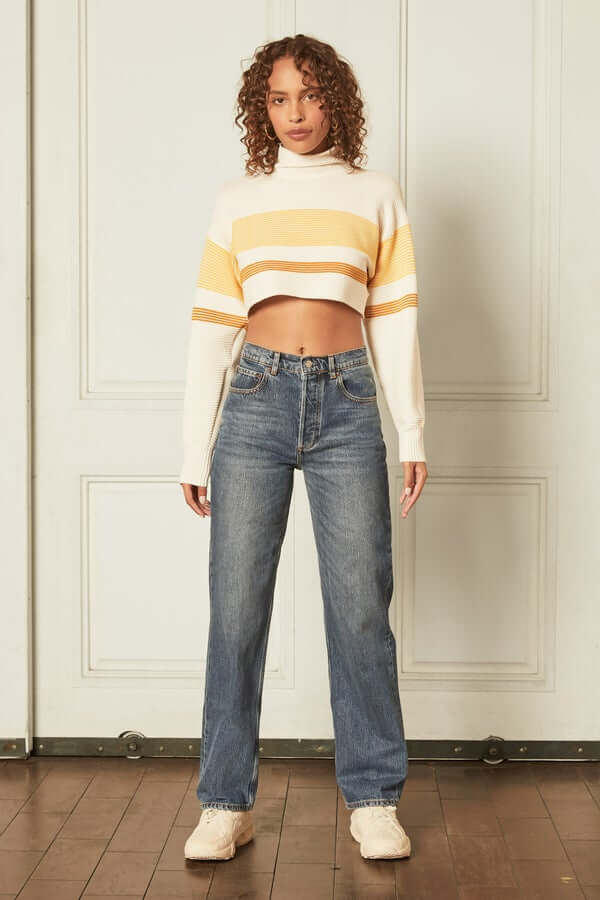
Sustainability: Carbon-neutral denim brand creating denim with sustainable practices and ethical labor. PETA-approved and cruelty-free.
Best for: Denim jeans, shorts, and jackets
Sizes: XXS-XL
Ships to: Free USA shipping

3. Reformation
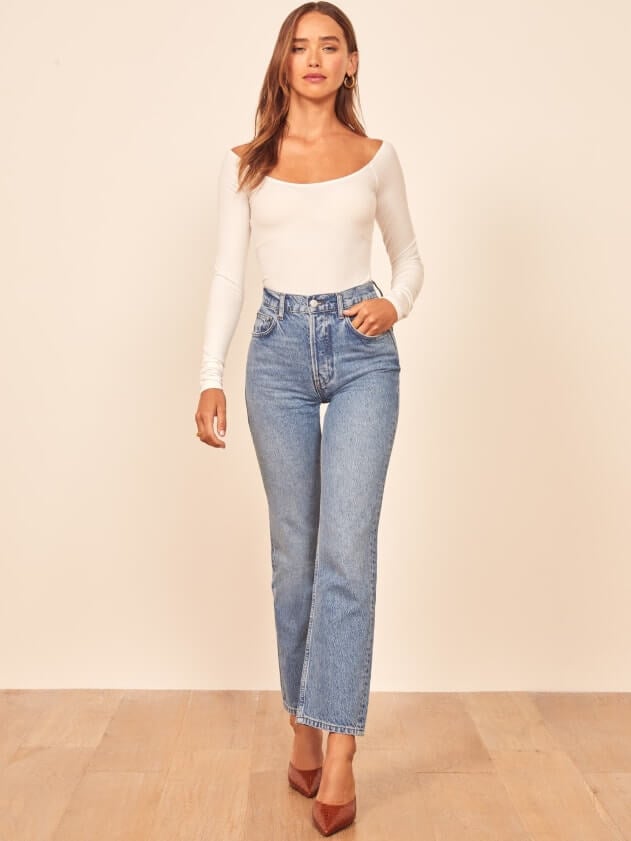
Sustainability: Sustainable practices, supply chain transparency
Best for: Denim jeans, sustainable dresses
Sizes: US 23-31
Ships to: Worldwide
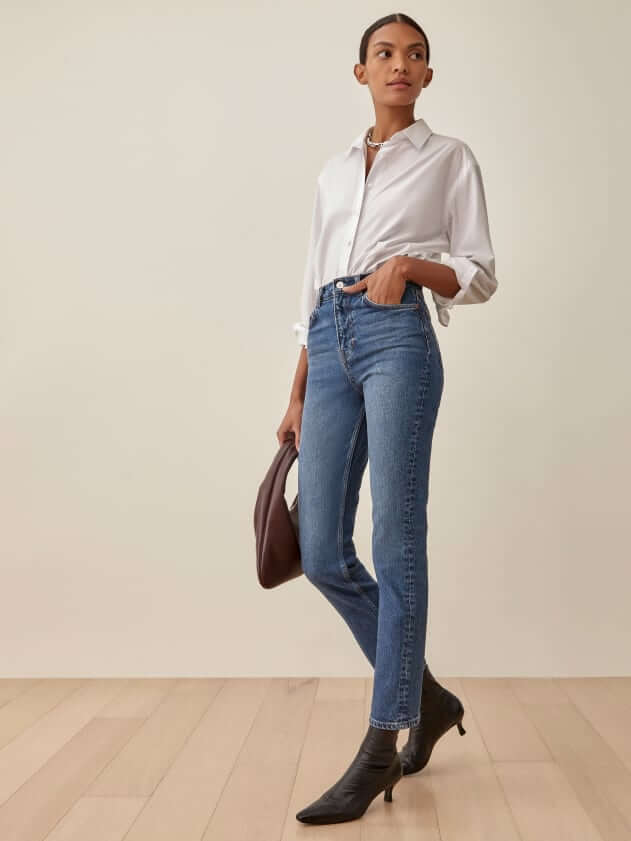
4. Outland Denim

Sustainability: Transparent supply chain, living wages, sustainable materials, including organic cotton.
Best for: Sustainable denim
Sizes: W24-34
Ships to: Australia, New Zealand & International

Wrapping Up: Is Madewell Ethical?
We hope you’ve enjoyed the article, and now have the information to make form your own opinion on whether Madewell is a sustainable and ethical brand.
If you loved the sustainable alternatives to Madewell, we think you’ll enjoy reading our recommendations for the best affordable sustainable clothes brands, and our sustainable sneaker guide.
Also check out our similar guides and brand ratings for brands including Modcloth, Free People, Nasty Gal, Banana Republic, and Zaful.
If you have any feedback, please let us know in the comments below.



